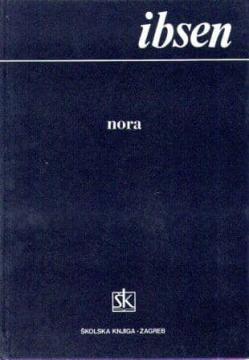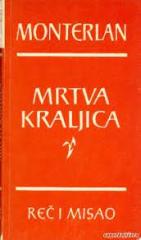
Nora (Kuća lutaka)
Nora (1879) is considered a masterpiece of realism and feminist literature. The story takes place in 19th century Norway and follows Nora Helmer, the wife of the banker Torvald.
Nora seems to live an idyllic life, but behind the facade of a happy marriage, she hides a secret: several years ago, she secretly borrowed money from Nils Krogstad, a former clerk, to save Torvald's health, forging her father's signature on the loan.
In the three acts of the play, Ibsen exposes social norms and gender roles. Nora, portrayed as a cheerful but naive wife, gradually realizes the limitations of her position. Krogstad blackmails Nora, demanding that she persuade Torvald not to fire him from the bank, otherwise he will expose her fraud. Nora desperately tries to keep the secret, while Torvald's reaction to the truth exposes his selfishness and the superficiality of their relationship. Instead of the expected forgiveness, Torvald accuses her of immorality, caring only about his reputation.
In the dramatic finale, Nora realizes that she was only a "puppet" in the hands of her husband and father. She decides to leave Torvald and the children, seeking her own identity and freedom, which at the time caused a scandal. Through Nora's transformation, Ibsen criticizes patriarchal society, raising questions about women's emancipation and personal autonomy.
No copies available
The last copy was sold recently.




